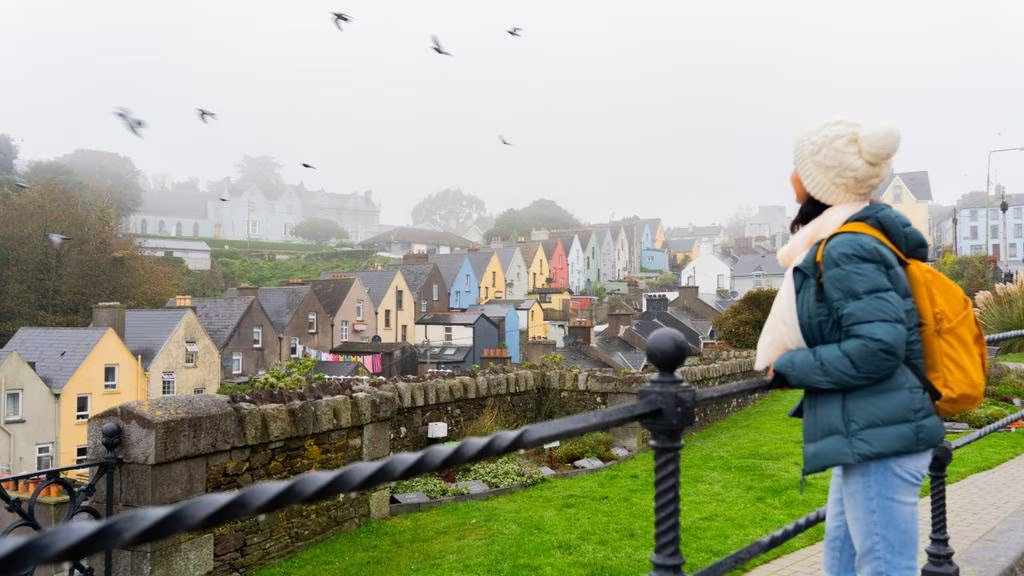Genealogy tourism is booming, here’s how to find your family history overseas

It’s never been easier to walk in the footsteps of your ancestors. Pic: Getty Images
When most people travel to Istanbul, they usually head to the Grand Bazaar or the Blue Mosque. Me? I can be found rummaging through decades-old paperwork in dingy offices with only the local street cats for company.
Words by Dilvin Yasa for Escape.com.au
Although I tell people I’m on a quest to learn more about my Ottoman roots, I don’t mind admitting I’m also hoping I’ll soon discover I’m a descendant of an obscenely wealthy Russian oligarch.
Everyone’s got their own “why”, of course, and that’s why heritage travel (or genealogy travel) is one of the fastest-growing trends in travel.
Driven by a rise in online genealogy resources, DNA testing sites and the popularity of heartstring-tugging shows like Who Do You Think You Are?, many of us are hitting the road in search of connection, family lore, or – in a country dominated by immigrants – that ever-elusive feeling of belonging.
A flash in the pan? Hardly. According to the latest data from Grand View Research, the global heritage tourism market is estimated at about $US600 billion and is projected to hit over $US778 billion by 2030.
Helping those figures climb skywards is a rapidly expanding portfolio of travel products and services to help us with our respective journeys, from genealogy cruises offered by companies such as Regent Seven Seas and AmaWaterways to guided tours by ProGenealogists and even government websites (Scotland and Germany among them) devoted to helping descendants of migrants return to the countries their forefathers worked hard to escape.
Keen to know more about who you are, really? Follow these key steps.

Heritage vs genealogy
Long before you begin booking flights, you’ll need to consider what it is you’re searching for. Despite often being used interchangeably, genealogy and heritage travel are different beasts.
The former is a deep dive into your family history, a research-heavy adventure with much of the action around your ancestral land taking place in government archives, libraries and religious centres.
For those who are more interested in the broader culture and history of your ancestral country or region rather than a myopic focus on your family, the latter is considerably more free-flowing with little need for the services of a dedicated genealogist.
Toolkit essentials
Once you’ve established your goal, you may wish to undertake a DNA test offered by companies such as Ancestry.com and Myheritage.com.
The test itself is simple: once you’ve placed your order, the company will send you a saliva sample kit. When your DNA has been posted back and processed, their analysis will tell you which parts of the world your family came from, helping you to narrow your focus not only on the right countries, but the correct regions.
DNA test aside, the next best thing to do is to talk to the eldest members of your extended family about their recollections of locations and people who may not feature in the usual family stories, says Brad Argent, head of international programming at Ancestry.com.
“Once you start collecting memories, you can get on with building out a family tree and where that stops, records come into play,” he says.
To that end, you’ll need to source as many official records – birth, marriage and death certificates or immigration records, for example – as you can to make your job easier.
Familysearch.org features a large number of country-specific resources, while Worldcat.org is a comprehensive database with information about library collections.
Ancestry, too, features a large collection of international records, but unlike Family Search, which is free, paid membership is required to access them.
Translation tools can assist if you’re struggling with foreign language documents, but you can also tap into forums and Facebook groups for tips and recommendations from others who share your cultural background.

Should I take a genealogy or heritage tour, or do family history travel on my own?
Before deciding on whether to research independently or not, ask yourself the following question: how much tolerance do I have for red tape?
While the cost might be a little hard to wear, genealogy companies have experts on the ground who can speak the language, understand and navigate the local culture (as well as the bureaucracy), and can access records you might have difficulty finding yourself.
If you’d prefer to search on your own, you can hire an independent genealogist from the Society of Australian Genealogists to help you with your mission, or better yet, engage the services of a local genealogist experienced in accessing documents and records in archives around their neighbourhood.
There’s nothing to say you can’t fly solo, of course, but remember to contact local archives, libraries, cemeteries and religious institutions to make all the necessary arrangements before you depart.
Some may not be open to the public without an appointment, may keep limited hours, or may close for holidays, which could see you miss out.
Deciding between a genealogy or heritage tour often comes down to budget, Argent says.
“When you visit the church where your great-grandparents got married, or the homes they grew up in, that’s when you get a sense of their humanity; they stop being names on a page and they start becoming people.”
The more bespoke a tour, the more expensive genealogy travel becomes, so he recommends starting with a guided tour to get a sense of the overall cultural experience before a subsequent deep dive into personal history later on. And if budget or time constraints come into play, Argent adds that there’s always a way around things.
“You can even do virtual tours where you can get locals on the ground to livestream places of interest for you. I liken the experience to an amuse-bouche for heritage travel, and it makes things accessible in a way that international travel may not be,” he says.

Manage your expectations
It’s human nature to expect a Hollywood ending when you finally reach your destination, and ultimately, the finish line. But if there’s anything that genealogists want you to know, it’s this: history can be messy, families complicated, and the desired reunion anything but joyous.
Managing expectations when undertaking a genealogy adventure is important, but so too is understanding that those who came before you were living in a different time, says Argent.
“For the most part, heritage or genealogy travel will do what it says on the tin and you’ll get clarification on stories familiar to you, but in some cases, there will be uncomfortable moments, unexpected shocks and discrepancies, and some tough conversations with those closest to you,” he says.
“The key thing to remember is that no matter what you learn on your travels, half of every one of us is genetic, and the other half is mimetic – we’re made up not only of genes, but also of stories.
“If you’ve lived your life as a proud Scotsman and you’ve just discovered you’re actually Irish, that doesn’t take anything away from your cultural identity. Don’t be too hard on your ancestors through this process – or yourself.”

5 heritage tours to book
Ready to learn more? These tour operators are putting in the hard yards so you can sit back and enjoy.
1. Italy
Just like your nonna’s tortellini, the team at Italy Mondo will create your Italian heritage tour from scratch, with guided, self-guided and full concierge services available on the ground.
2. UK
Enjoy a nine-night Northern European sailing with Regent Seven Seas as a team of genealogists on board help you explore your roots between port visits, whether it be London, Cork or Dunkirk. A 14-night Mediterranean heritage cruise is also available.
3. Greece
Returning to your family’s village is made easier with the team at True Greece who will create and assist with an itinerary based on your unique history and connection to the land.
4. China
From genealogy tours to field research on your behalf, My China Roots (the agency behind 2021 Netflix documentary Found), has a team of expert multilingual guides on hand to help with your mission.
5. Poland
Take a stroll through Poland’s Malopolska region with Discover Live and Ancestry, one of many live-streamed heritage tours (complete with personalised elements of your family history) for those who are unable to travel overseas.
This article originally appeared on Escape.com.au as Genealogy tourism is booming, here’s how to find your family history overseas.
Related Topics
UNLOCK INSIGHTS
Discover the untold stories of emerging ASX stocks.
Daily news and expert analysis, it's free to subscribe.
By proceeding, you confirm you understand that we handle personal information in accordance with our Privacy Policy.








